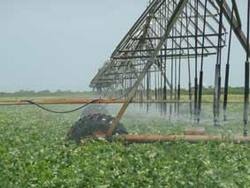The Exceptional Nature of Cuban Urban Agriculture
- Submitted by: admin
- Business and Economy
- Politics and Government
- 04 / 25 / 2010

The state is pervasive throughout Cuba and controls virtually all aspects of the official economy.
The government can mobilize quickly and massively around its priorities through an array of powerful policy tools at its disposal.
After 50 years of socialist rule, Cuban institutions, as well as the mentality and expectations of the Cuban public, differ vastly from those in the U.S.
By way of example, the ruling motto of Cuban urban agriculture states, “We must decentralize only up to a point where control is not lost, and centralize only up to a point where initiative is not killed” embodies the vast differences between their planned economy and our free market system.
The fundamental differences between the Cuban and American systems as they relate to the success of urban agriculture are vast and, for the most part, are insurmountable.
Land ownership key
Case in point, the success of urban agriculture in Cuba has been grounded in the distribution of public land for food production.
For example, a law passed in 2008 allowed any citizen or entity to request idle lands up to 33 acres to be passed out in usufruct for 20-40 years.
This law resulted in 16,000 persons requesting land in the past two years. Since all land in Cuba – with the exception of private homes – is the property of the State, the government has resources at its disposal to support its policies far beyond that of any American jurisdiction.
By Michael Levenston
Source: www.cityfarmer.info/
Comments